Butcher block countertops have gained popularity in recent years for their natural beauty, durability, and versatility. Made from solid wood, typically maple, cherry, walnut, or oak, butcher block countertops add warmth and character to any kitchen or workspace. The distinctive wood grain and rich colors of butcher block countertops make them a timeless and classic choice for both traditional and contemporary design styles.
One of the key benefits of butcher block countertops is their durability and resilience. Wood is naturally resistant to bacteria, making it an excellent choice for food preparation areas such as kitchen countertops. Additionally, butcher block countertops can be sanded and refinished multiple times, allowing them to withstand years of heavy use without losing their luster or charm. With proper care and maintenance, butcher block countertops can last a lifetime, making them a wise investment for any home or commercial space.
Choosing the Right Wood Species
When ordering butcher block countertops, it’s important to choose the right wood species that best suits your needs and preferences. Each wood species has its unique characteristics, including grain pattern, color variation, and hardness. Maple is a popular choice for butcher block countertops due to its uniform grain pattern and light color, while cherry offers a rich, reddish-brown hue and distinctive grain pattern. Walnut is prized for its dark, chocolatey color, and luxurious appearance, while oak offers a classic, traditional look with its prominent grain and golden undertones.
Consider factors such as the overall aesthetic of your kitchen or workspace, your budget, and the level of maintenance you’re willing to commit to when choosing a wood species for your butcher block countertops. Keep in mind that different wood species may require different levels of care and maintenance to keep them looking their best.
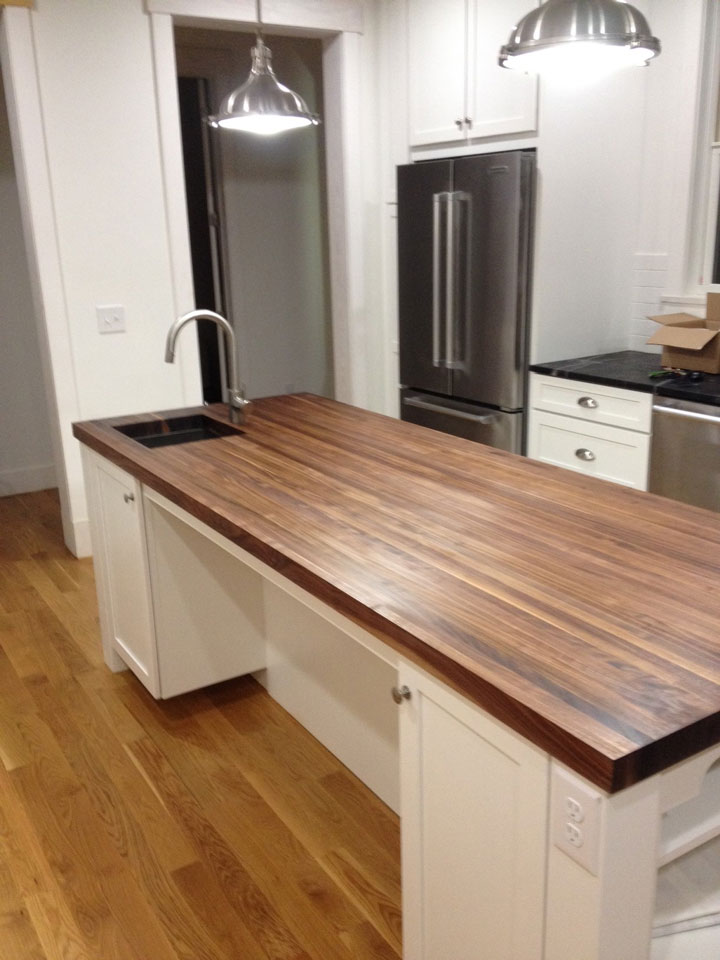
Determining Size and Thickness
Another important consideration when ordering butcher block countertops is determining the size and thickness that best fits your space and needs. Butcher block countertops are typically available in standard sizes and thicknesses, but custom sizes and thicknesses can also be ordered to accommodate unique or irregularly shaped spaces. Measure the dimensions of your countertop space carefully and consider factors such as overhang, edge profiles, and backsplash height when determining the size and thickness of your butcher block countertops.
In addition to size and thickness, consider whether you want to incorporate features such as built-in sinks, cooktops, or custom edges into your butcher block countertops. These features can add functionality and visual interest to your countertops while also reflecting your personal style and preferences.

Selecting a Finish
The final step in ordering butcher block countertops is selecting a finish that enhances the natural beauty of the wood and protects it from moisture, stains, and scratches. There are several different finish options available for butcher block countertops, including mineral oil, beeswax, polyurethane, and varnish. Each finish has its pros and cons in terms of appearance, durability, and maintenance requirements.
Mineral oil and beeswax are popular choices for finishing butcher block countertops due to their natural, food-safe properties and ease of application. These finishes penetrate the wood to nourish and protect it from within, enhancing the natural color and grain of the wood while providing a water-resistant barrier. Polyurethane and varnish finishes offer greater durability and scratch resistance but may alter the appearance of the wood and require more maintenance over time.

Common Mistakes to Avoid
Not Considering Maintenance: One common mistake is not considering the maintenance requirements of butcher block countertops before ordering. Different wood species and finishes may require different levels of care and maintenance to keep them looking their best, so it’s important to choose options that align with your lifestyle and preferences.
Choosing the Wrong Wood Species: Another mistake is choosing a wood species that is not suitable for your specific needs and preferences. Make sure to research the characteristics of each wood species and consider factors such as grain pattern, color variation, and hardness before making a decision.
Ignoring Size and Thickness: Neglecting to measure your countertop space carefully and determine the appropriate size and thickness of your butcher block countertops can result in ill-fitting or unbalanced countertops. Take the time to measure accurately and consider factors such as overhang, edge profiles, and backsplash height when ordering.
Skipping Customization Options: Not taking advantage of customization options such as built-in sinks, cooktops, or custom edges can limit the functionality and aesthetic appeal of your butcher block countertops. Consider incorporating these features into your countertops to create a unique and personalized space that reflects your style and preferences.

Are butcher block countertops suitable for all kitchen styles?
Yes, butcher block countertops are versatile and can complement a wide range of kitchen styles, from traditional to modern. The natural beauty and warmth of wood add character and charm to any kitchen space.
How often do butcher block countertops need to be refinished?
The frequency of refinishing butcher block countertops depends on factors such as wood species, finish type, and level of use. Generally, it’s recommended to refinish butcher block countertops every 1-3 years to maintain their appearance and protect them from moisture and stains.
Can I cut directly on butcher block countertops?
While butcher block countertops are durable and resistant to bacteria, it’s not recommended to cut directly on them without using a cutting board. Cutting directly on the countertops can cause scratches and damage to the wood surface over time.
Are butcher block countertops heat-resistant?
While wood is naturally resistant to heat, it’s important to use trivets or hot pads to protect butcher block countertops from direct contact with hot pots, pans, and cookware. Excessive heat can cause discoloration, warping, and other damage to the wood surface.
How do I clean and maintain butcher block countertops?
To clean butcher block countertops, simply wipe them down with a damp cloth and mild detergent. Avoid using harsh chemicals or abrasive cleaners, as these can damage the finish and wood surface. Periodically apply a food-safe mineral oil or beeswax finish to nourish and protect the wood.
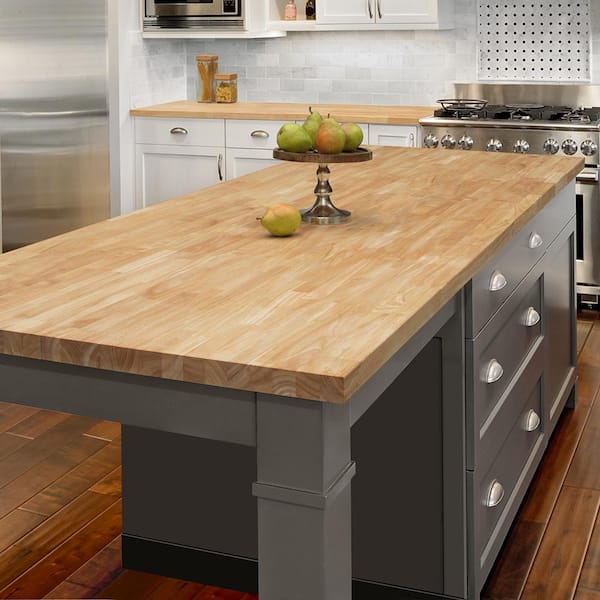
Best butcher block countertop FOX31 Denver

HARDWOOD REFLECTIONS Unfinished Birch 6.17 ft. L x 39 in. D x 1.5
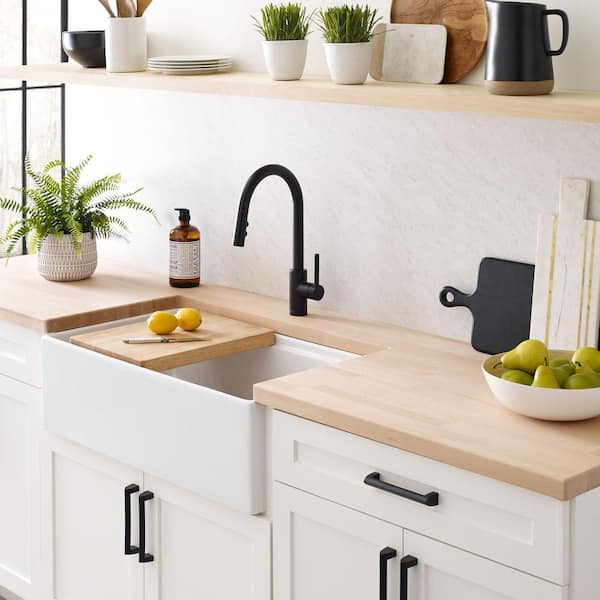
Custom Butcher Block Countertops u0026 More Forever Joint Tops

Butcher-Block Countertops: Cost, Pros and Cons, and More
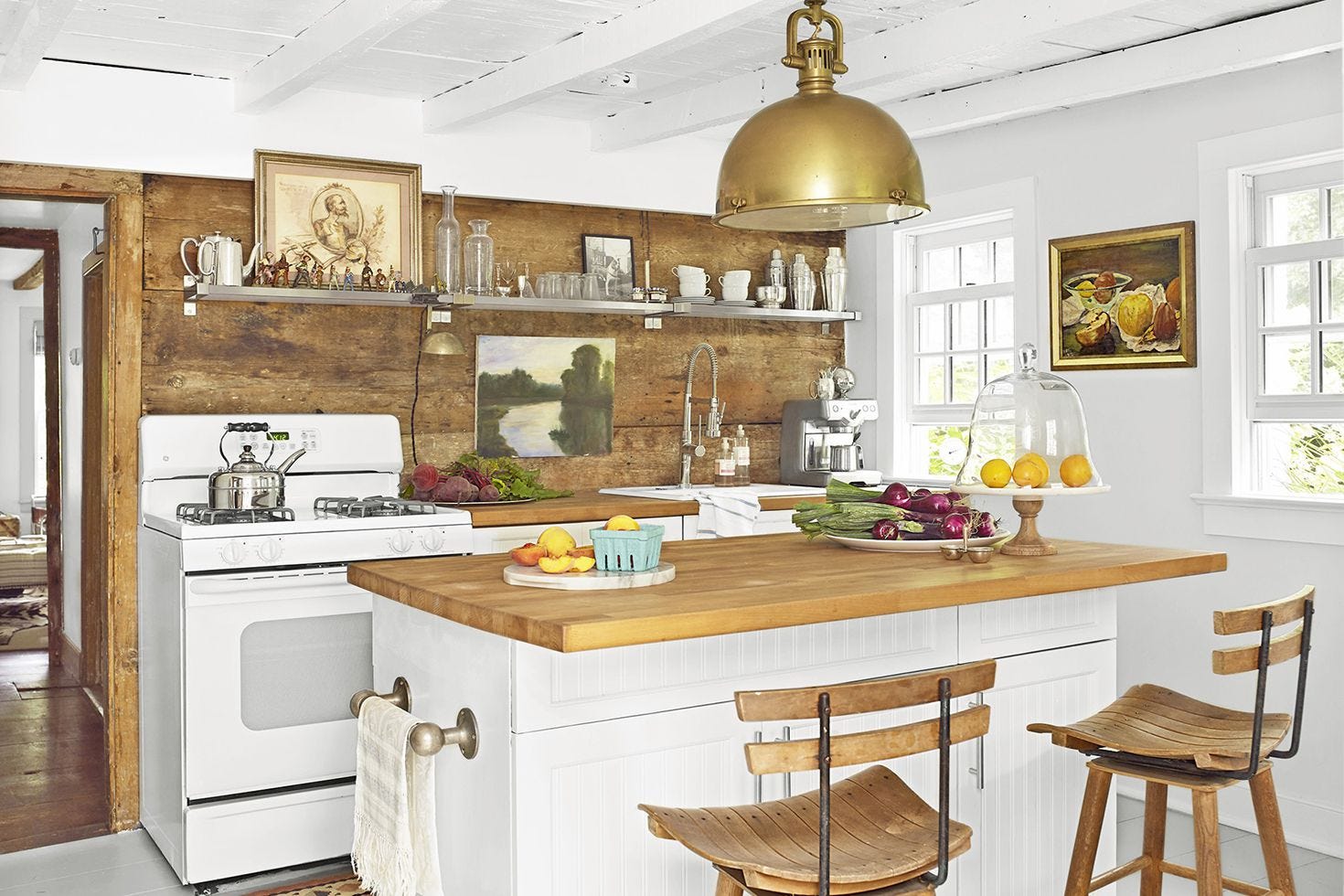
Reclaimed Butcher Block Mixed Hardwood Countertops From Etsy
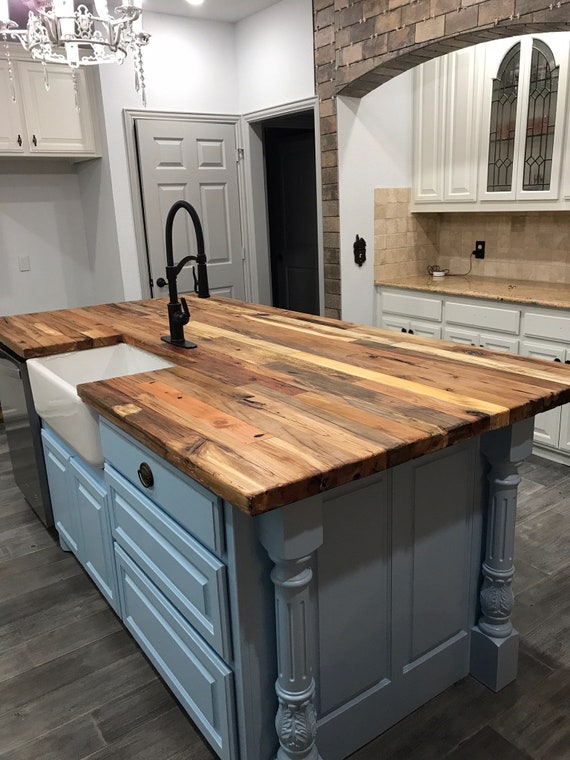
Related articles:
- Pine Butcher Block Countertops
- Butcher Block Countertops Walnut
- Maple Butcher Block Countertops
- Care Of Butcher Block Countertop
- Butcher Block Countertops Maintenance
- Antique Butcher Block Countertops
- Butcher Block Countertop Sealing
- Wood Butcher Block Countertop
- Thick Butcher Block Countertop
- How To Finish A Butcher Block Countertop